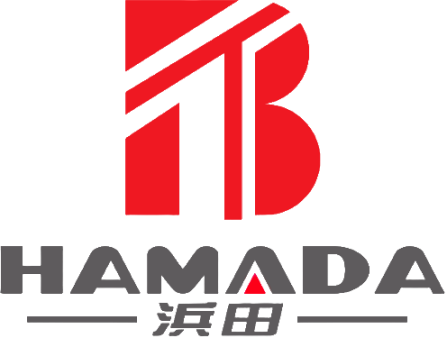Japanese Harmonic Drive Harmonic Reducer Market Application Report
Japanese Harmonic Drive Harmonic Reducer Market Application Report
Introduction
As a high-performance reducer, Japanese Harmonic Drive harmonic reducer has been widely used in many fields since its commercialization due to its unique transmission principle and excellent performance characteristics. This report will analyze the market application of Harmonic Drive harmonic reducer in detail, including its technical characteristics, application fields, market size and development trends.
Technical characteristics
Harmonic Drive harmonic reducer is mainly composed of three core components: wave generator, flexible gear (flexwheel) and rigid gear (rigid wheel). Its working principle is to force the flexible wheel to produce controllable elastic deformation through the wave generator, and mesh with the rigid wheel to transmit motion and power. This design is not only compact and light, but also can achieve high reduction ratio, high torque capacity, high-precision transmission and low-noise operation. Specific features include:
- High-precision transmission: Multiple teeth are meshed at the same time, and there are two 180-degree symmetrical gears meshing, which makes the position accuracy and rotation accuracy extremely high.
-Large transmission ratio: Single-stage coaxial can obtain a high reduction ratio of 1/30 to 1/320. The structure is simple but can realize a high reduction ratio device.
-High efficiency: The gear meshing part has very little sliding, which reduces the power loss caused by friction and maintains high efficiency.
-Long life: Wear-resistant and corrosion-resistant materials and surface treatment processes are used to ensure stable operation in various harsh environments.
Application areas
Harmonic Drive harmonic reducers have been widely used in many fields due to their excellent performance:
1.Industrial robots: Harmonic reducers are the core transmission components of industrial robots and are widely used in precision machine tools, robot joints, etc. to ensure the accuracy and stability of robot movement.
2.Semiconductor and photovoltaic equipment: In semiconductor liquid crystal production equipment and photovoltaic equipment, harmonic reducers provide efficient and accurate transmission support to ensure the smooth progress of the production process.
3. Optical instruments: In optical instruments, harmonic reducers are used for precision measurement and positioning to meet high-precision requirements.
4. Medical equipment: In medical equipment, harmonic reducers are used in surgical robots, imaging equipment, etc. to ensure the accuracy of surgery and the stability of equipment.
5. Aerospace: In the aerospace field, harmonic reducers are used in aircraft servos, landing gears, navigation systems, etc. to ensure the precise control and reliability of aircraft.
In addition, harmonic reducers are also widely used in humanoid robots, precision machine tools, printing equipment, optical equipment, metal processing equipment, space equipment and other fields.
Market size and development trend Market size According to market research data, the global harmonic reducer market size in 2023 is approximately US$596 million, and it is expected to reach US$971 million by 2030, with a compound annual growth rate (CAGR) of 7.2%. This shows that the harmonic reducer market has stable growth potential.
Market Structure
The global harmonic reducer market is dominated by several core manufacturers, including HDSI, Leaderdrive, Zhejiang Laifual, Shenzhen Han's Motion Technology, Nidec-Shimpo, etc. Among them, Japanese manufacturers occupy the main market share, especially Harmonic Drive Systems, whose products enjoy a high reputation worldwide.
Development Trends
With the rapid development of industrial automation, intelligent manufacturing, aerospace and other fields, the demand for high-precision and high-efficiency transmission components continues to increase, and the harmonic reducer market will usher in a broader development space. In the future, harmonic reducers will develop in the direction of higher precision, larger transmission ratio, smaller size and lighter weight to meet the diversified needs of different fields.
Conclusion
Japan's Harmonic Drive harmonic reducer has been widely used in industrial robots, semiconductor equipment, optical instruments, medical equipment, aerospace and other fields due to its advantages of high-precision transmission, large transmission ratio, high efficiency and long life. With the continuous advancement of technology and the sustained growth of market demand, the harmonic reducer market will maintain a steady growth trend and provide strong support for the development of related industries.
 English
English Español
Español Português
Português русский
русский français
français 日本語
日本語 Deutsch
Deutsch Tiếng Việt
Tiếng Việt Italiano
Italiano Nederlands
Nederlands ไทย
ไทย Polski
Polski 한국어
한국어 Svenska
Svenska magyar
magyar Malay
Malay বাংলা
বাংলা Dansk
Dansk Suomi
Suomi हिन्दी
हिन्दी Pilipino
Pilipino Türk
Türk Gaeilge
Gaeilge عربى
عربى Indonesia
Indonesia norsk
norsk اردو
اردو čeština
čeština Ελληνικά
Ελληνικά Українська
Українська Javanese
Javanese فارسی
فارسی தமிழ்
தமிழ் తెలుగు
తెలుగు नेपाली
नेपाली Burmese
Burmese български
български ລາວ
ລາວ Latine
Latine Қазақ
Қазақ Euskal
Euskal Azərbaycan
Azərbaycan slovenský
slovenský Македонски
Македонски Lietuvos
Lietuvos Eesti Keel
Eesti Keel Română
Română Slovenski
Slovenski मराठी
मराठी Српски
Српски
A Giant Eye Exploring the Origins of the Universe: The Optical Marvel of the Subaru Telescope
As an international collaborative project led by the National Astronomical Observatory of Japan, its name comes from the Pleiades (M45), symbolizing the collective wisdom and global collaboration of the Japanese astronomical community.
Read MoreSpace Industry: HarmonicDrive® and Humanity's First Round Trip to the Asteroid Belt
The space industry, as a cutting-edge field for human exploration of the universe and development of space resources, is developing at an unprecedented pace.
Read MoreHarmonic Drives: The "Space Joints" of NASA's Perseverance Rover's Robotic Arm
In February 2021, NASA's Perseverance rover successfully landed on the Martian surface, marking a new era in human exploration of Mars. One of the most striking technological highlights of this 1025-kilogram "Mars scientist" is its robotic arm system—five Harmonic Drive® units serve as the core transmission components, ensuring the precise operation of scientific instruments in the extreme Martian environment.
Read More